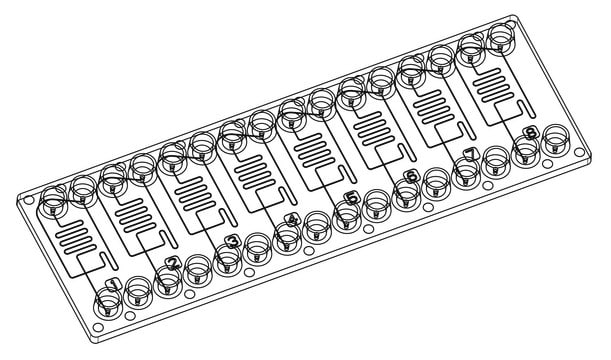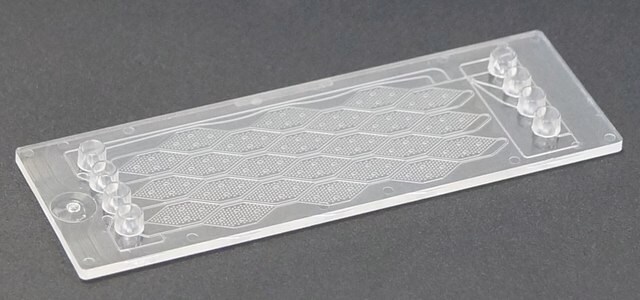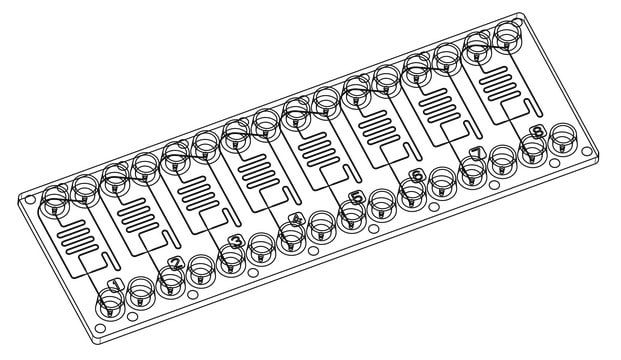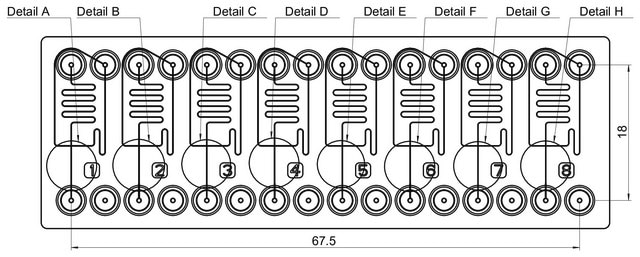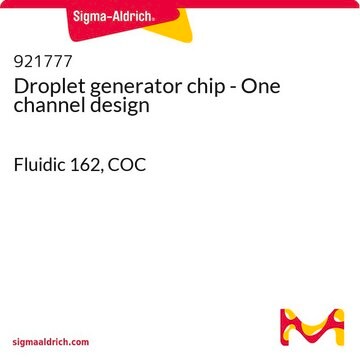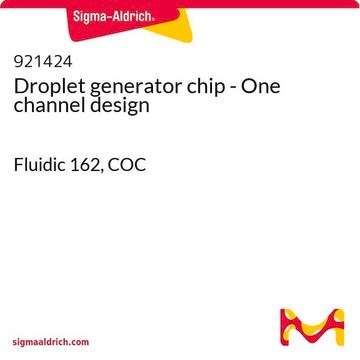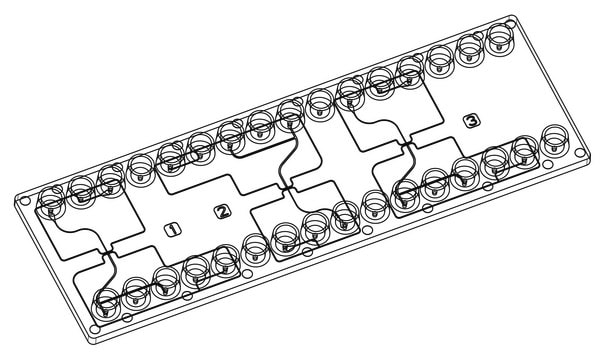921491
Droplet generator chip - One channel design
Fluidic 162, PC
Synonym(s):
Microfluidic, Microparticle, Nanoparticle
About This Item
Recommended Products
description
Microfludic chip x1
Looking for similar products? Visit Product Comparison Guide
Application
Droplet generator chip - One channel design, Fluidic 162, PC is made of PC (polycarbonate), and features a double channel crossing in the droplet generation region and one droplet collection channel. Like most droplet generators with a double cross geometry, Fluidic 162 can also be used for single cross experiments by simply not connecting respective channels but closing their interfaces with plugs. With a nozzle size of 70 μm droplet sizes between 80 μm (∼260 pl) and 210 μm diameter can be realized. A constant droplet size can be generated in various flow speeds by preserving the oil to aqueous phase ratio. By increasing the oil phase flow rate at a constant aqueous flow rate, the droplet size can be fine-tuned.
Certificates of Analysis (COA)
Search for Certificates of Analysis (COA) by entering the products Lot/Batch Number. Lot and Batch Numbers can be found on a product’s label following the words ‘Lot’ or ‘Batch’.
Already Own This Product?
Find documentation for the products that you have recently purchased in the Document Library.
Articles
Microfluidic assembly improves polyamine nanoencapsulation of nucleic acids, overcoming challenges like polydispersity and poor reproducibility.
Microfluidic assembly improves polyamine nanoencapsulation of nucleic acids, overcoming challenges like polydispersity and poor reproducibility.
Microfluidic assembly improves polyamine nanoencapsulation of nucleic acids, overcoming challenges like polydispersity and poor reproducibility.
Microfluidic assembly improves polyamine nanoencapsulation of nucleic acids, overcoming challenges like polydispersity and poor reproducibility.
Our team of scientists has experience in all areas of research including Life Science, Material Science, Chemical Synthesis, Chromatography, Analytical and many others.
Contact Technical Service